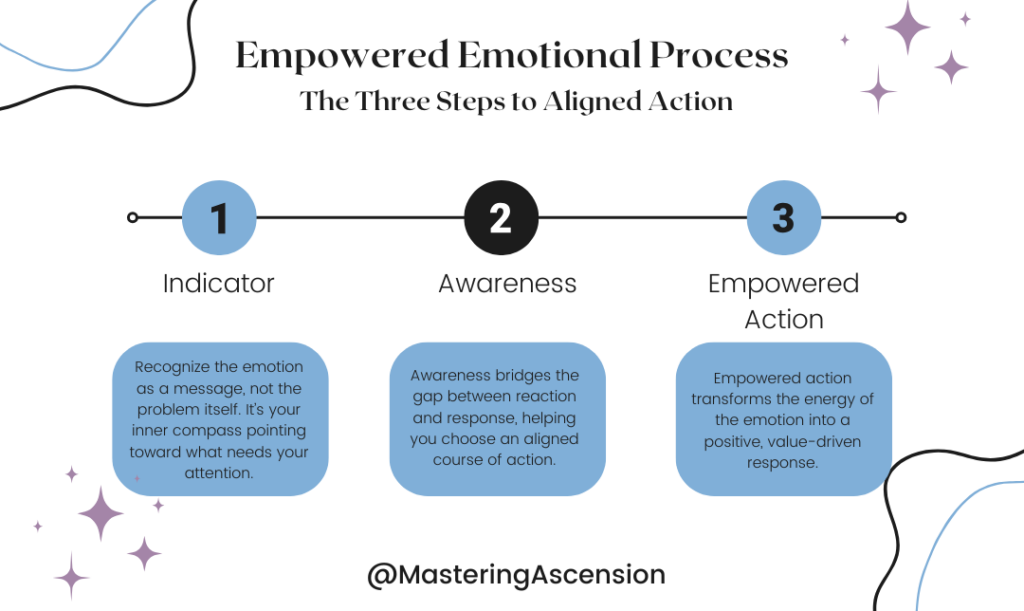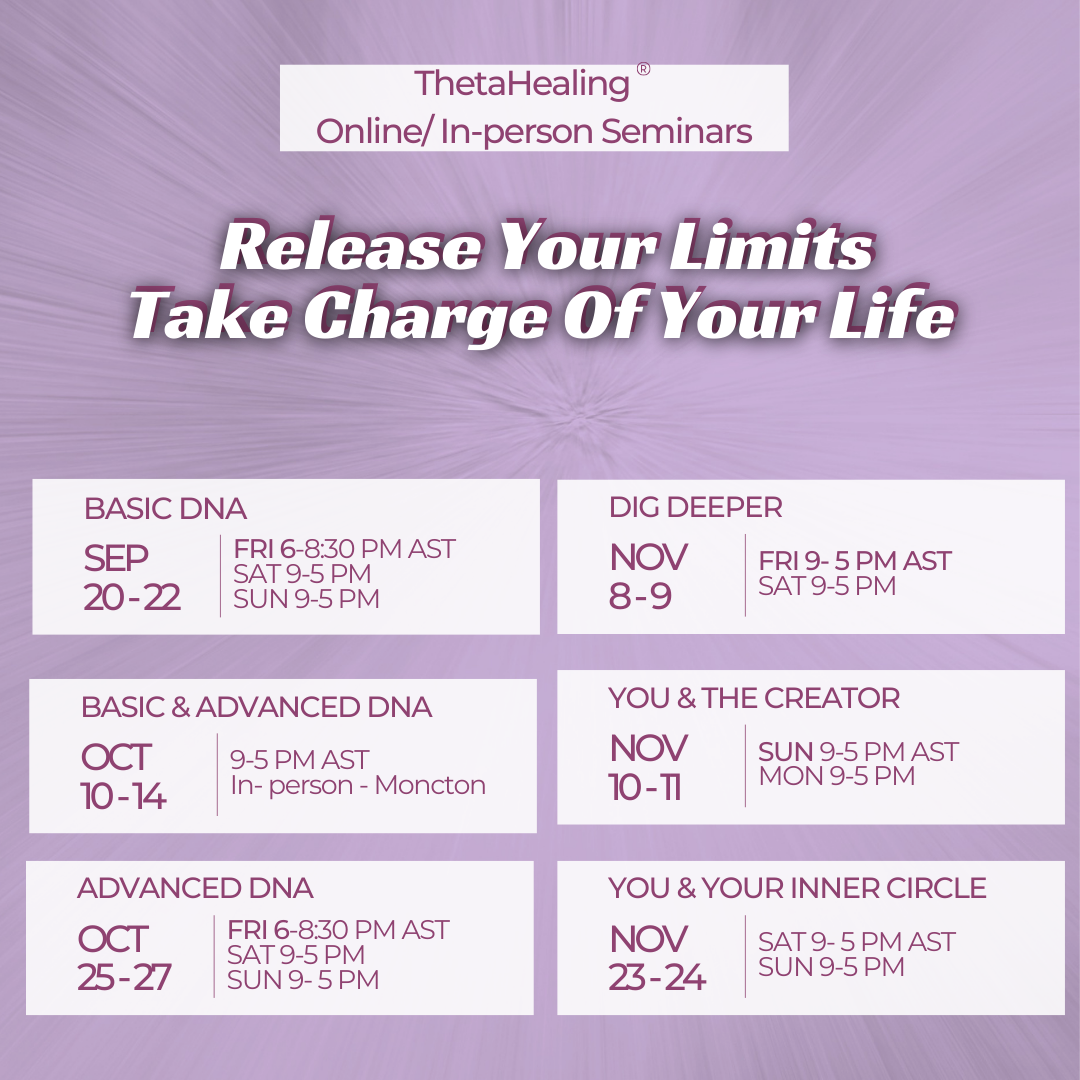Emotions are incredibly powerful. They guide our choices, drive our actions, and sometimes, hold us back from what we desire. Every emotion has a dual purpose—it both signals our inner state and motivates our actions. Understanding this duality is the first step toward using emotions as tools for empowerment, rather than letting them enslave us in old unhelpful patterns.
Emotions as an Indicator
At their core, emotions are signals. They tell us how we’re experiencing a situation, shining a light on our perception of whether our needs are being met, boundaries are respected, or values are upheld.
Take anger, for example. When it ignites, it’s signaling (very clearly!) that a boundary has been crossed or a core value disregarded. Anger here acts as a ‘check-engine’ light on our inner world’s dashboard, alerting us to something that needs attention.
When we lean into emotions as indicators, we gather information about our inner landscape. Being able to read these markers, allows us to make conscious decisions based on what we value and need, rather than simply reacting to external events. Emotions are indicators of our inner wisdom or reactions from past wounds, two different data sets that should be dealt with accordingly.
This in itself is a huge topic to unpack, and if you’re curious to dive deeper into emotions as messengers, I’ve explored this further in this article on the hidden wisdom of your emotions.
But for now, let’s consider this: Which do you think is more valuable for you?
- Reacting from the wounded self.
- Responding from the wise self.
Good, I knew you’d get it! So with that in mind, I’m sure you understand why creating discernment around what “data set” is lighting up your dashboard is helpful. This distinction alone can be life-changing, as it creates a gap between the initial emotional reaction and the action we choose to take.
Emotions as a Motivator
Emotions don’t just tell us how we feel—they also propel us into action. But here’s the catch: when our motivation comes from fear-based emotions like anger, the outcome often falls short of our best intentions.
Think about it: how often have you looked back on an anger-fueled reaction, cringed, and thought, ‘Why did I handle it that way?’
This is where the difference between fear-based and desire-based motivators becomes critical. While fear-based reactions can lead to quick action, they usually come at a cost—depleting our energy, muddying our intentions, and often leaving us with regrets.
Sure, you can make quick work with a grenade, but when it comes to your relationships and your life choices, often the Midas touch is the way to go. Even when you are standing up for yourself in an unfair situation, when you speak your truth with the energy of self-respect as the carrier wave rather than anger, the message is received much more openly and clearly by the recipient. A message fueled by anger and resentment is rarely received with an open mind.
The Importance of Choosing Clean Fuel: Love vs. Fear
Running on fear-based motivators like anger is like using dirty fuel—it gets you moving but drains your energy and leaves a mess in its wake. Anger might give you the boost you need to set a boundary or defend yourself, but it comes at a price—an energy that can leave you feeling tense, agitated, and often unsatisfied with the results.
In contrast, desire-based motivators, like self-respect and self-love, create “clean fuel.” This type of motivation doesn’t exhaust or agitate you; it sustains and uplifts, it is more easily understood and received by others.
Now, imagine enforcing a boundary from a place of self-love. Instead of anger, which can feel combative or heavy, self-love brings clarity, calm, and confidence. It’s the difference between saying, “Enough! That’s it, I’m done!.,” versus, “This isn’t working for me, I’m going to need to pass, it’s not in alignment with my needs.”
Yes, anger might alert you to a boundary violation, but fully transmuting that initial surge into a self-love-driven response is where true empowerment lies. That’s where we want to get to.
In a perfect scenario, it’s indicator, then awareness, followed by action fueled by love. When we act from this higher level of clarity, we’re making choices rooted in our values, without the emotional residue that anger often leaves behind.

Now, let me just dispel a misconception right now before I give you the impression that I’m suggesting you go all light, love and rainbows, turn into a total pushover, and put on some rose-colored glasses.
Moving from love is sometimes saying the hard thing, making the hard choice, defending your values, or standing up for your rights.
Some of the hardest conversions I’ve had came from a deep place of love.
The difference in being led by love is I didn’t regret how it played out, I wouldn’t change a word, and I can’t say the same about when I’ve spoken from an angry place, or frozen up out of fear.
Breaking the Cycle of Fear-Based Motivators
For many of us, anger has become the default motivator to take action. This cycle—where anger or fear is required to push you into setting boundaries or standing up for yourself—can be toxic. Over time, it creates a dependency on anger to get things done. You unintentionally create this pattern that becomes your default path to enforcing boundaries.
Your subconscious is a funny beast; here’s what it learns from this. I need better boundaries…Pattern activated… Let me source some anger so I can use the process I know leads to better boundaries. Infraction, anger, reaction, boundaries.
Mission accomplished. But what of the casualties left in the wake of this process?
This ‘anger cycle’ is exhausting—it chains you to reactive patterns, making it hard to act from intentional, empowered choices.
A major part of breaking this cycle is building the discernment to recognize when we’re using anger to fuel our actions and then shifting to a higher motivator. This doesn’t mean suppressing anger; rather, it’s about acknowledging it, understanding what it’s signaling, and then transmuting it into a desire-based motivator. Transmutation complete, it’s time to create a sustainable and aligned action that is in integrity with who you truly are.
💭 Reflection: From Reactive to Responsive
Pause for a moment and ask yourself: “What would it look like to respond from a place of self-love, rather than from the initial sting of anger?” Notice where you feel called to set boundaries or make choices from a place of calm empowerment instead of reaction.
Practical Steps to Shift from Fear-Based to Desire-based Motivation
- Pause and Reflect: Before acting, take a moment to assess the emotion that’s driving you. Is it rooted in fear, frustration, or anger? Or is it coming from self-respect, love, and a desire for peace?
- Acknowledge the Emotion: Rather than pushing anger away, allow it to inform you. Thank it for signalling that something needs attention, then release it to make room for a response rooted in clarity.
- Reframe Your Intentions: Shift your focus from “avoiding harm” to “creating well-being.” When setting a boundary, frame it as an act of love and respect rather than as a reaction to something negative.
An Empowering Relationship with Emotions
Navigating emotions with this awareness can completely transform your experience and your relationships. Instead of swinging wildly between reaction and regret, you’re empowered to create responses that align with your values and build a more peaceful, purpose-driven life. Teaching this discernment is one of the ways I help my clients move into true empowerment, supporting them as they shift into desire-based motivators and take charge of their lives in a sustainable, joyful way.
This approach has been life-changing for so many of those I work with, and I’ve seen how this work ripples out to positively impact their relationships, work, and overall well-being. So, the next time you feel anger rising, remember: you have the power to transmute it into a force of love and purpose, creating a life where every action radiates your soul’s essence. Choose to be empowered by your inner dashboard and let it guide you to your goals.








